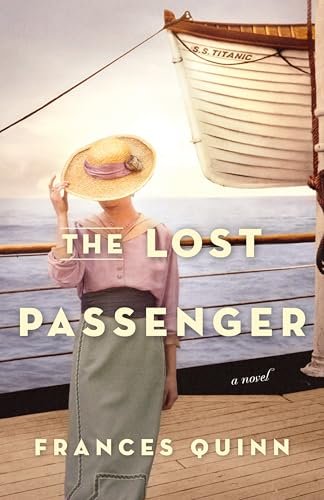
Book Review of The Lost Passenger
The Lost Passenger: A Journey Through Identity and Resilience
When I first heard about Frances Quinn’s The Lost Passenger, I was immediately intrigued by its premise: a young woman forced to reinvent herself in the wake of the Titanic disaster. It felt like a delicate dance of survival and self-discovery, wrapped in the rich tapestry of early 20th-century history. As someone who’s always been fascinated by the complexities of identity and the transformative power of tragedy, I was eager to delve into Quinn’s world.
At the heart of The Lost Passenger is Elinor Coombes, a character whose growth is as compelling as her journey. Initially enthralled by her aristocratic husband, Frederick, Elinor quickly finds herself ensnared in a loveless marriage, emblematic of the restrictive societal norms of her time. Quinn masterfully captures this suffocating atmosphere, illuminating the stark realities of aristocratic life through poignant moments. I found myself deeply affected by the heart-wrenching scenes where she is persistently kept from her son, underscoring the cruel detachment of her upper-class existence.
One of the standout aspects of Quinn’s writing is her ability to infuse historical detail without overwhelming the narrative. From the grand halls of Winterton to the bustling tenements of New York’s Lower East Side, I was transported into the vibrant settings. I especially appreciated how Quinn didn’t shy away from showing Elinor’s naive arrogance, making her transformation all the more impactful. The author’s portrayal of Elinor’s gradual adaptation to her new life—filled with moments of humor and humanity—felt realistic and relatable.
Quinn’s prose is both accessible and rich, offering insight into the characters’ internal struggles while maintaining the forward momentum of the narrative. I was particularly struck by moments like Elinor’s frantic but ultimately liberating choice to assume another woman’s identity, which lends a fascinating moral complexity to her character. Is it wrong to deceive if it’s done for the chance at a better life? This question lingers throughout the pages, prompting thoughtful reflection.
However, it’s not all smooth sailing. Some pacing issues through the mid-section occasionally dragged, and I felt that certain external historical contexts were underdeveloped. Yet, these minor hiccups were easily overshadowed by the intricate exploration of class distinctions and the visceral emotional depth Quinn provides.
Ultimately, The Lost Passenger becomes a story not just about survival, but about the resilience of the human spirit. Elinor’s confrontation with her past and her struggles for her son’s future resonate long after the last page is turned. Frances Quinn has crafted a nuanced drama that engages both the heart and the mind, making it perfect for readers enamored with historical fiction, tales of transformation, or explorations of identity.
If you’re looking for a novel that artfully blends personal growth with historical context, The Lost Passenger will surely captivate you. For me, it was not just a page-turner, but a profound reflection on what it means to reclaim one’s life in the face of loss.
Discover more about The Lost Passenger on GoodReads >>






